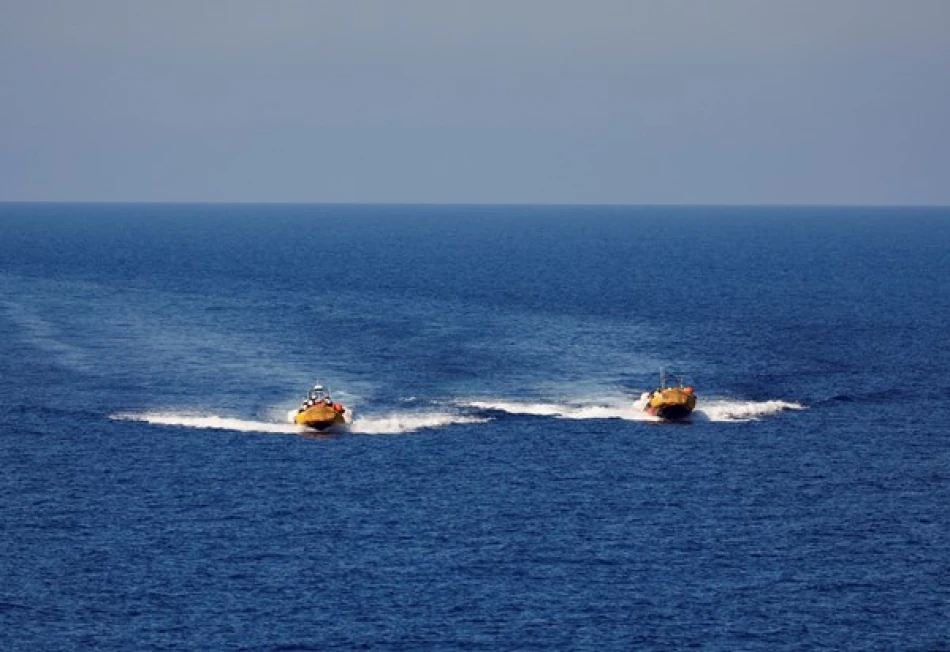
Tragedy on the High Seas: Dozens Perish or Missing After Boat Sinks Off Libya's Coast
Mediterranean Migrant Crisis Deepens as Libya Route Claims 19 More Lives
The International Organization for Migration confirmed the recovery of 19 bodies following the sinking of a rubber boat carrying over 70 Sudanese migrants off Libya's eastern coast, highlighting the escalating human cost of Europe's increasingly militarized border policies. With 42 people still missing and only 14 survivors rescued after five days at sea, this latest tragedy underscores how Libya has become both a critical transit hub and a death trap for African migrants seeking European asylum.
The Deadly Journey from Kambut
The overcrowded vessel departed on September 9 from a beach near the Libyan town of Kambut, carrying migrants primarily from Sudan and South Sudan—two countries ravaged by ongoing civil conflicts and economic collapse. The boat sank on the same day it launched, yet survivors somehow managed to stay alive in Mediterranean waters for five days before rescue teams located them.
The circumstances of their survival remain unclear, raising questions about the effectiveness of current search and rescue operations in the region. The five-day gap between the sinking and rescue suggests either delayed distress signals or insufficient monitoring of one of the world's most dangerous migration corridors.
Libya's Role as Europe's Unofficial Border Guard
This incident reflects Libya's complex position in the Mediterranean migration crisis. Since the fall of Muammar Gaddafi in 2011, the country has transformed into the primary departure point for African migrants attempting to reach Europe. The ongoing civil war has created a power vacuum that human traffickers exploit, while European Union policies increasingly rely on Libyan coast guard interceptions to prevent arrivals on European shores.
Unlike other regional migration routes—such as the Eastern Mediterranean path through Turkey or the Western route via Morocco—the Central Mediterranean crossing from Libya remains the deadliest. The European Union's cooperation agreements with Libya, while reducing arrivals to Italy, have effectively outsourced border control to a country with limited capacity for humanitarian protection.
The Sudanese Exodus Intensifies
The predominance of Sudanese nationals on this boat reflects broader regional instability. Sudan's economic crisis, compounded by military coups and ethnic violence, has displaced millions internally and driven hundreds of thousands to seek refuge abroad. South Sudan, despite its oil wealth, remains one of the world's youngest and most unstable nations, with recurring famines and armed conflicts pushing citizens toward dangerous migration routes.
This demographic shift represents a significant change from previous migration patterns, when West African economic migrants dominated Libya-Europe crossings. The current flow suggests that political persecution and conflict, rather than purely economic motivations, are increasingly driving migration decisions.
Economic and Political Implications
For European policymakers, each Mediterranean tragedy intensifies the political tension between humanitarian obligations and domestic anti-immigration sentiment. The EU's current strategy of supporting Libyan interception capabilities while limiting legal migration pathways appears to be pushing desperate migrants toward increasingly dangerous crossing attempts.
The human cost also carries economic implications. Search and rescue operations, refugee processing, and long-term integration programs require substantial resources, while the loss of young, economically active migrants represents a significant drain on origin countries already struggling with development challenges.
As autumn weather patterns make Mediterranean crossings even more perilous, this latest tragedy signals that current policies are failing both to protect migrant lives and to provide European governments with sustainable immigration management. Without expanded legal migration channels or improved regional stability in Africa, the deadly cycle of desperate crossings and maritime disasters will likely continue to escalate.
Most Viewed News

 Layla Al Mansoori
Layla Al Mansoori






